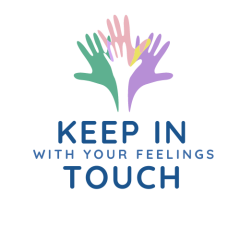Rejection hurts, any way you slice or dice it. Maybe you’ve been turned down by a new crush, rejected from a friend group or didn’t get the dream job you applied to — no matter what form of rejection it is, getting told “no” after you’ve put it all out there can often feel heart-breaking. It can be enough to make you want to stop putting yourself out there again altogether.
How can you come back from a rejection feeling stronger? Despite this painful experience, getting rejected may actually benefit you — it can empower you to grow and become more resilient later in life. So the next time you get a “no” for an amazing opportunity, or from someone who you care for very much, the following information might help you cope better.

Realize why rejection hurts so much.
There’s a reason all rejections sting so much — and it’s not because you’re weak or too sensitive. In fact, there’s an evolutionary facet to why we desperately need other people to accept us; our need for connection traces way back to ancient history, when humans relied on being in groups to survive.
Beyond an evolutionary standpoint, our response to rejection also depends on something called our attachment styles, or the models in which we develop our relationships with other people. People who interact with their caregivers in a healthy way as infants usually develop a secure attachment style in which they view themselves as being worthy and lovable — but those with insecure attachment styles come to generally view themselves as unlovable, unworthy and inadequate. It’s no wonder, then, that some of us have a harder time getting through rejection — our need for connection is wired into us right from birth!
Use romantic rejection as an opportunity to prevent another heartbreak.
Out of all the types of rejection, getting rejected from a crush or romantic partner can easily feel the worst, as it involves aspects of yourself that may be outside of your control (like your physicality). Romantic relationships have an intimacy component that leads individuals to feel more vulnerable — and therefore, can cause individuals to feel more hurt when we face rejection in this way.
But jumping right into another relationship to dull the pain of the first rejection can lead to an unhealthy cycle of reinforcing that old traumatic wound of your first rejection. Instead, take some time to self-reflect first; even though you may not be successful at first, trying to land on the root of why things didn’t work out may help you be better aware in future relationships.
If, for instance, your partner rejects your marriage proposal (or any proposal to move your relationship to the next level) you should consider it an opportunity to reassess and take stock of your relationship — and self-reflect on your own emotions and intentions.
Practice self-care and place yourself in a positive, nurturing environment.
Anger and hurt will probably be your immediate reactions after a rejection, but contrary to popular belief, releasing your anger (for example, screaming or hitting a punching bag) doesn’t help bring the negative emotion down — in fact, it’s likely to even increase it.
In these moments, self-care is truly important. Try enjoying something visual like looking at pretty pictures or putting flowers in your room; or, slowly sip on a warm beverage; light a nice-smelling candle or even don soft pyjamas to feel warm and cosy. Experts also recommend physical activities like exercising and going for a run, doing yoga and meditation — all of which can help you get in a balanced place to think more clearly about the situation instead of getting into the rut of emotional thinking.
After you’ve taken some time to calm down and get grounded, it’s important to pay attention to what you’re feeling — and a great way to do this is to write it all down in a journal.
One exercise you can do is to literally list all the emotions you’re feeling — and then pair them with the thoughts that are going with those emotions. And whenever you are paying attention to your emotions, remember that it’s never helpful to feel like you shouldn’t feel a certain way.
Avoid rumination and instead affirm your self-worth.
After a rejection, we tend to beat ourselves up over the things that might have led us to be rejected — and might even end up dwelling on these negative emotions, a process called rumination. This habit, however, inevitably causes us to feel worse.
If you have negative thoughts about yourself, observe — then challenge — those thoughts. If you have thoughts like “I’m unlovable” after being rejected by a love interest, for example, it’s important to acknowledge that it’s simply a thought. To affirm your self-worth, write down some things that are positive about yourself — for instance, come up with a list of some of your strengths and values, and start your morning off each day by reading them out loud to yourself.
By helping you hold on to the things that are a part of you, these self-affirmations will help you feel stronger just by recognizing who you really are and how you identify yourself, especially in the face of self-doubt that often comes with rejection.

Lean on a support system and the people you love.
The most important thing to remember is that life doesn’t boil down to this one rejection — there are always plenty of people who are on your side. To remind yourself that you haven’t been completely shunned by the world, turn to your friends and family; make sure that you’re still feeling truly connected with other people around you. If you’re trying to figure out how to deal with rejection from a crush, for instance, you might want to turn to your friends for moral support and some quality BFF time.
Even if you can’t actually spend time with a loved one at the moment, try taking some time to just think of someone who’s important in your life. In fact, you can even find a picture of them — preferably a photo of you two enjoying your time together — and set some time to look at it each day while reminding yourself that this person supports you.
Double down on healthy lifestyle habits to bounce back.
Sometimes, it can boil down to just everyday things in your home or work routine that might influence how you respond to rejection. Maybe you didn’t get enough sleep, or haven’t been eating well lately. These things can definitely make it harder to handle rejection in a healthy way — so one thing you can do to cope better is to work on leading a healthy lifestyle.
This means focusing in on eating well, exercising frequently, and staying hydrated, all of which can help you stay strong in the face of rejection.
Don’t let rejection stop you from trying again.
If there’s one important skill to learn from rejection, it’s that you should never let it stop you from your future endeavours — getting rejected is just an inevitable part of life, after all, and every single successful person has experienced it at one time or another.
So the next time you’re turned down for a date or a promotion you’ve been gunning for, remind yourself that rejection happens to everyone — and instead of allowing yourself to be devastated and beat down, ask yourself what you can do going forward.

Pingback: How To Give Flowers To A Woman To Express Your Feelings? - Intouchwithfeelings